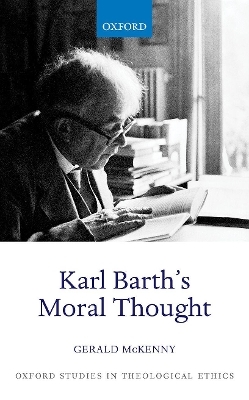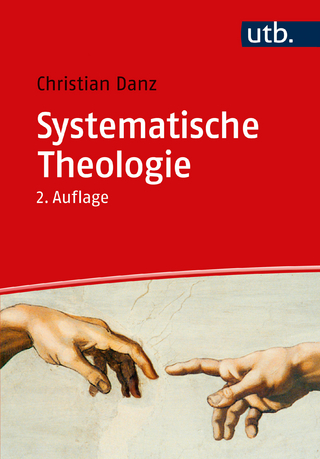
Karl Barth's Moral Thought
Seiten
2021
Oxford University Press (Verlag)
9780192845528 (ISBN)
Oxford University Press (Verlag)
9780192845528 (ISBN)
Gerald McKenny follows Barth's efforts to present God's grace as a moral norm in his treatments of divine commands, moral reasoning, responsibility, and agency.
Does theological ethics articulate moral norms with the assistance of moral philosophy? Or does it leave that task to moral philosophy alone while it describes a distinctively Christian way of acting or form of life? These questions lie at the very heart of theological ethics as a discipline. Karl Barth's theological ethics makes a strong case for the first alternative. Karl Barth's Moral Thought follows Barth's efforts to present God's grace as a moral norm in his treatments of divine commands, moral reasoning, responsibility, and agency. It shows how Barth's conviction that grace is the norm of human action generates problems for his ethics at nearly every turn, as it involves a moral good that confronts human beings from outside rather than perfecting them as the kind of creature they are. Yet it defends Barth's insistence on the right of theology to articulate moral norms, and it shows how Barth may lead theological ethics to exercise that right in a more compelling way than he did.
Does theological ethics articulate moral norms with the assistance of moral philosophy? Or does it leave that task to moral philosophy alone while it describes a distinctively Christian way of acting or form of life? These questions lie at the very heart of theological ethics as a discipline. Karl Barth's theological ethics makes a strong case for the first alternative. Karl Barth's Moral Thought follows Barth's efforts to present God's grace as a moral norm in his treatments of divine commands, moral reasoning, responsibility, and agency. It shows how Barth's conviction that grace is the norm of human action generates problems for his ethics at nearly every turn, as it involves a moral good that confronts human beings from outside rather than perfecting them as the kind of creature they are. Yet it defends Barth's insistence on the right of theology to articulate moral norms, and it shows how Barth may lead theological ethics to exercise that right in a more compelling way than he did.
Gerald McKenny is Walter Professor of Theology at the University of Notre Dame. His publications include Biotechnology, Human Nature, and Christian Ethics (Cambridge University Press, 2018), The Analogy of Grace: Karl Barth's Moral Theology (Oxford University Press, 2010), and To Relieve the Human Condition: Bioethics, Technology, and the Body (SUNY Press, 1997).
Abbreviations
1: Karl Barth's Theological Ethics
2: The Command of God as a Moral Norm
3: The Command of God as a Morally Binding Norm
4: The Continuity of God's Commands
5: Hearing God's Command
6: Responsibility and the Moral Subject
7: Divine Action and Human Action
Conclusion
Bibliography
Index
| Erscheinungsdatum | 05.10.2021 |
|---|---|
| Reihe/Serie | Oxford Studies in Theological Ethics |
| Verlagsort | Oxford |
| Sprache | englisch |
| Maße | 146 x 223 mm |
| Gewicht | 400 g |
| Themenwelt | Geisteswissenschaften ► Philosophie ► Ethik |
| Religion / Theologie ► Christentum ► Kirchengeschichte | |
| ISBN-13 | 9780192845528 / 9780192845528 |
| Zustand | Neuware |
| Informationen gemäß Produktsicherheitsverordnung (GPSR) | |
| Haben Sie eine Frage zum Produkt? |
Mehr entdecken
aus dem Bereich
aus dem Bereich
die Macht des Dunklen in unserer Zeit und wie wir ihr entgegentreten
Buch | Hardcover (2025)
Verlag Herder
CHF 27,90


